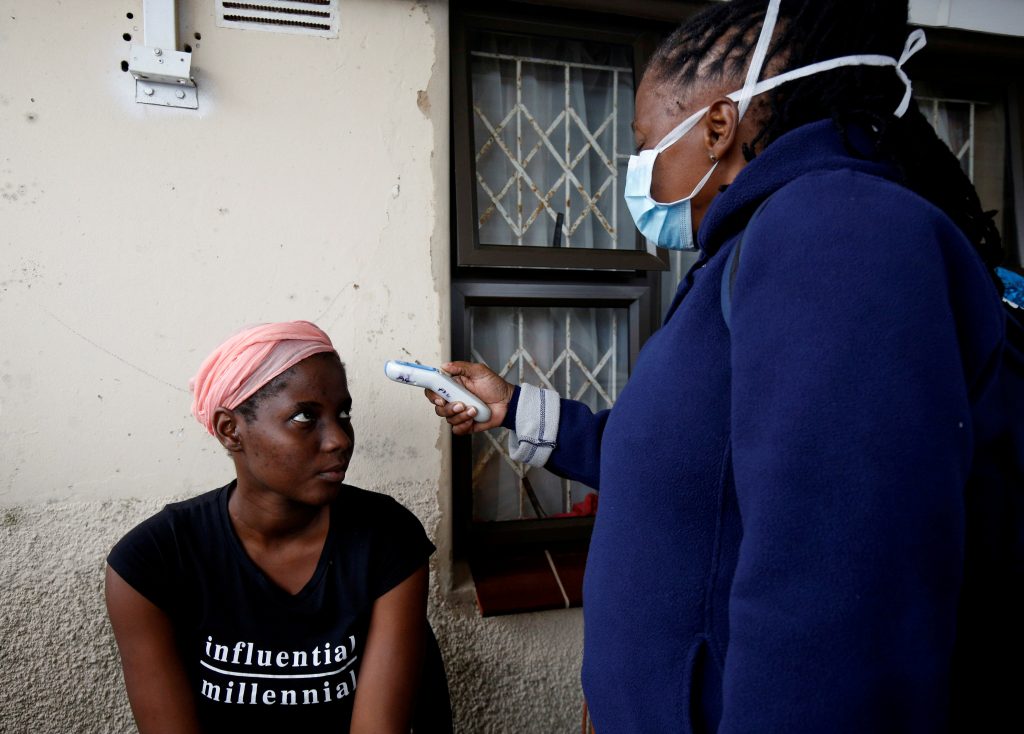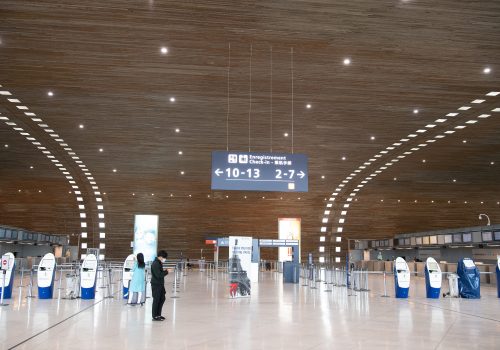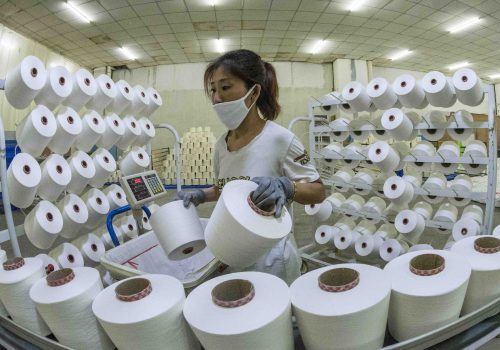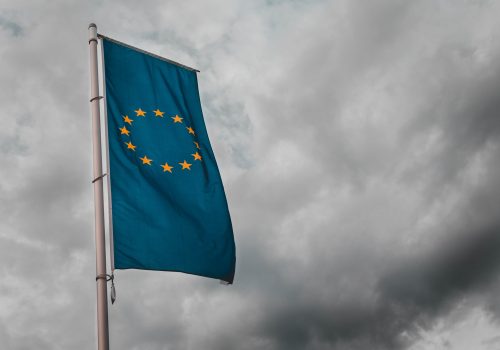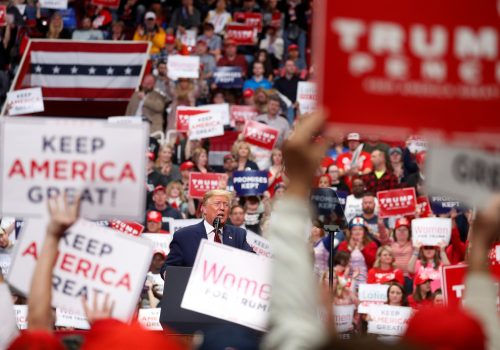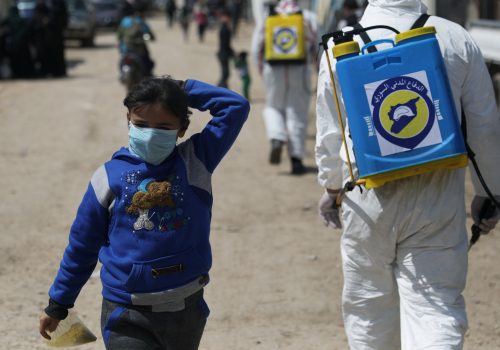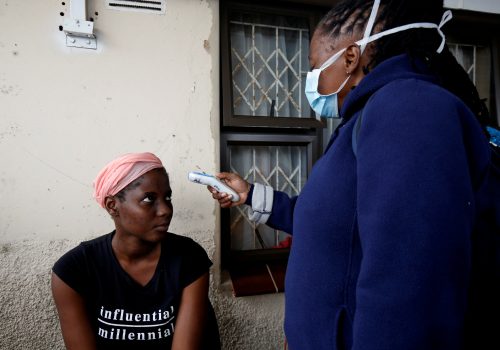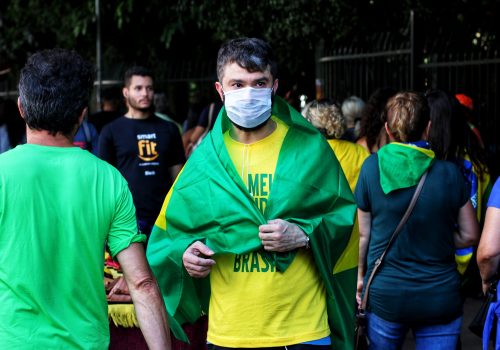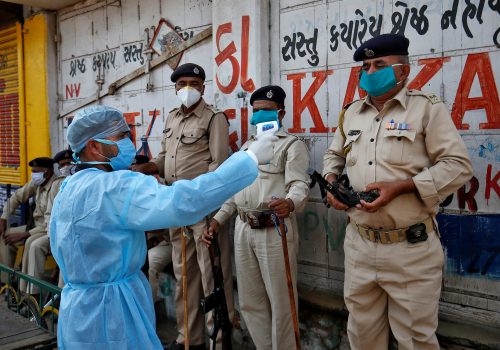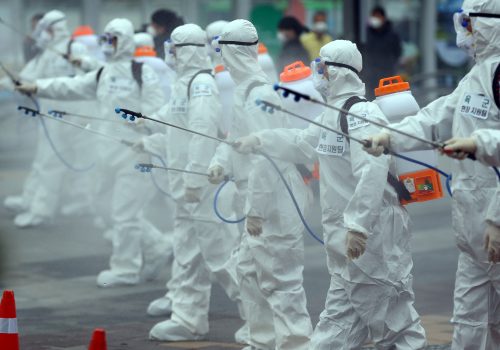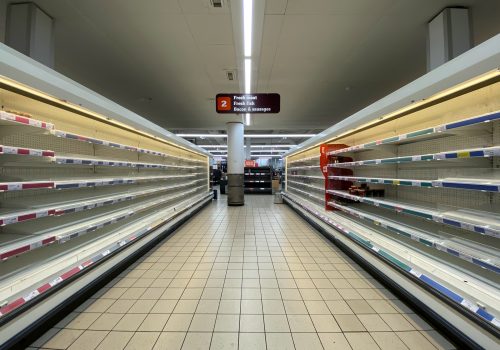The full text of the paper is split across the various articles linked below. Readers can browse in any order. To download a PDF version, use the button below.
Any assessment of Africa must begin with the caveat that generalizing about the continent is dangerous owing to its enormous size, dozens of countries, thousands of ethnic and linguistic groupings, diverse natural ecosystems, and divergent economies. Nonetheless, as elsewhere, the pandemic’s short- and long-term impacts on Africa (here meaning sub-Saharan Africa) have touched every aspect of society.
Thus far, Africa has been spared the worst public health impacts. As of May 22, the entire continent had only just passed the 100,000-case mark, with even fewer deaths, around 3,100.1“Africa COVID-19 Cases Top 100 000,” World Health Organization, May 22, 2020, https://www.afro.who.int/news/africa-covid-19-cases-top-100-000. Much credit appears to go to the continent’s governments, many of which have drawn on their experiences handling previous viral outbreaks such as Ebola to implement swift and robust countermeasures. These countermeasures include the rapid scaling of testing, widespread contact tracing carried out by trained workers, travel bans and travel protocols, plus a variety of other tools to combat the disease’s spread.2Jina Moore, “What African Nations Are Teaching the West About Fighting the Coronavirus,” New Yorker, May 15, 2020, https://www.newyorker.com/news/news-desk/what-african-nations-are-teaching-the-west-about-fighting-the-coronavirus. See also Simon Marks, “Africa’s Coronavirus Outbreaks Seeded from Europe,” Politico, March 19, 2020, https://www.politico.eu/article/coronavirus-in-africa-europe/. And although the continent’s hotter weather may not, in the end, prove of much help in mitigating COVID-19 transmission (Brazil’s current infection rate indicates that the virus transmits easily in warmer temperatures), the pandemic’s eventual public health impact in Africa, in particular mortality, likely also will be checked by Africa’s “youth dividend” (the continent is the youngest in the world).
Yet, as is true elsewhere in the world, African governments are facing the harsh tradeoffs between protecting public health through retaining their countermeasures versus striving for much-needed economic recovery. As an example, as of late May, South Africa had relatively few cases (around 22,000), the result of early nationwide restrictions. Yet the virus has been stubborn, showing signs of renewed momentum in parts of the country. Despite this evidence, South African President Cyril Ramaphosa has been under severe pressure to get the economy moving again and has begun its gradual reopening.3Joseph Cotterill, “S Africa Plans Localised Lockdowns As Pressure Mounts to Reopen,” Financial Times, May 13, 2020, https://www.ft.com/content/9a731e38-149a-4339-a8fb-46bc964478b3.
Case Study: Nigeria
Across all scenarios, Nigeria is facing a likely economic contraction.
In the least worst-case scenario (contained outbreak), Nigeria’s GDP growth could decline from 2.5 percent to 3.4 percent in 2020—in other words, a decline of nearly six percentage points. That would represent a reduction in GDP of approximately $20 billion, with more than two-thirds of the direct impact coming from oil-price effects, given Nigeria’s status as a major oil exporter.
In scenarios in which the outbreak is not contained, Nigeria’s GDP growth rate could fall to −8.8 percent, representing a reduction in GDP of some $40 billion. The biggest driver of this loss would be a reduction in consumer spending in food and beverages, clothing, and transport.
A widespread fear is that if COVID-19 caseloads surge across Africa, public health systems will quickly be overwhelmed. African countries face critical shortages of hospital beds and respirators and do not have the means to manufacture their own domestic supplies of medical items. Much concern centers on African cities, which contain some of the highest concentrations of slum dwellers in the world (more than half of all African urbanites live in slums, constituting well over 200 million people).4Urbanization and Development: Emerging Futures. World Cities Report 2016, UN-Habitat, 2016, pp. 58-59, https://unhabitat.org/sites/default/files/download-manager-files/WCR-2016-WEB.pdf. For residents of densely packed slums, social distancing and other countermeasures (handwashing with soap multiple times a day) simply are not possible. Moreover, their high poverty levels (85 percent of Africans live on less than $5.50 a day) mean that most people cannot withstand a lengthy economic standstill.5Bronwyn Bruton, “What Does the Coronavirus Mean for Africa?” AfricaSource, March 24, 2020, https://www.atlanticcouncil.org/blogs/africasource/what-does-the-coronavirus-mean-for-africa/.
Regardless of the public health impacts, Africa’s many fragile economies will be dealt a very difficult blow. In April, Rwandan President Paul Kagame suggested Africa might take “a generation or more” to recover economically, absent decisive and coordinated action from abroad.6David Pilling, “Africa Could Take ‘a Generation’ to Recover from Coronavirus, Says Kagame,” Financial Times, April 20, 2020, https://www.ft.com/content/93293b6a-f167-45b9-8ad2-594e4c26fd50. As with other world regions, the long-term question involving the global powers looks at how they will reassess their interests in engaging Africa during and after the pandemic, and what resources they will be willing to offer a severely impacted continent.
Given China’s increased activity in Africa, how will the two biggest global powers game out their interests and presence on the continent during and after the pandemic? Another analogy is to the Middle East: given Europe’s physical proximity to Africa plus its longstanding security and economic ties, will Europeans choose to deepen their engagement with Africa, or will Europe attempt to wall itself off from possible downside consequences of the pandemic emanating from the continent?
See where US leadership is most vulnerable
Related content
About the authors
Image: FILE PHOTO: A health worker checks a woman's temperature during a door-to-door testing in an attempt to contain the coronavirus disease (COVID-19) outbreak, in Umlazi township near Durban, South Africa, April 4, 2020. REUTERS/Rogan Ward/File Photo
